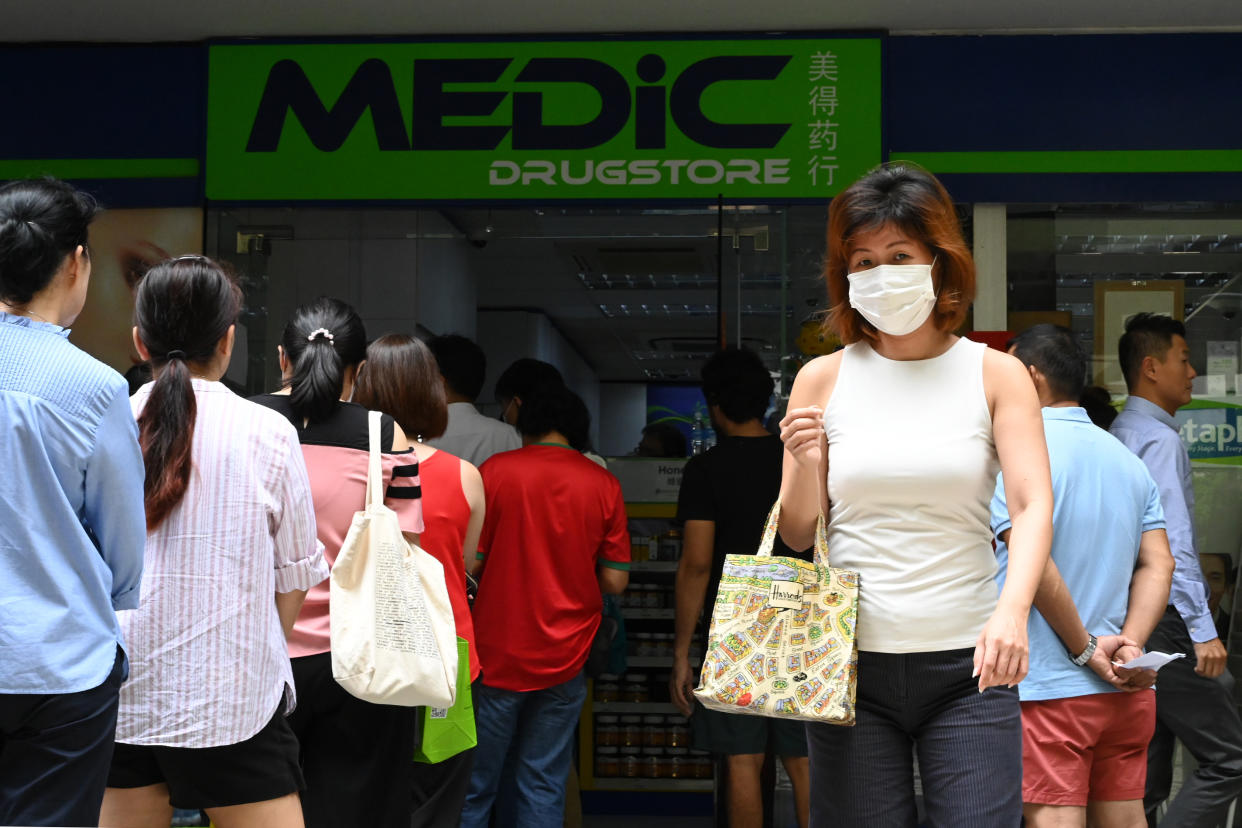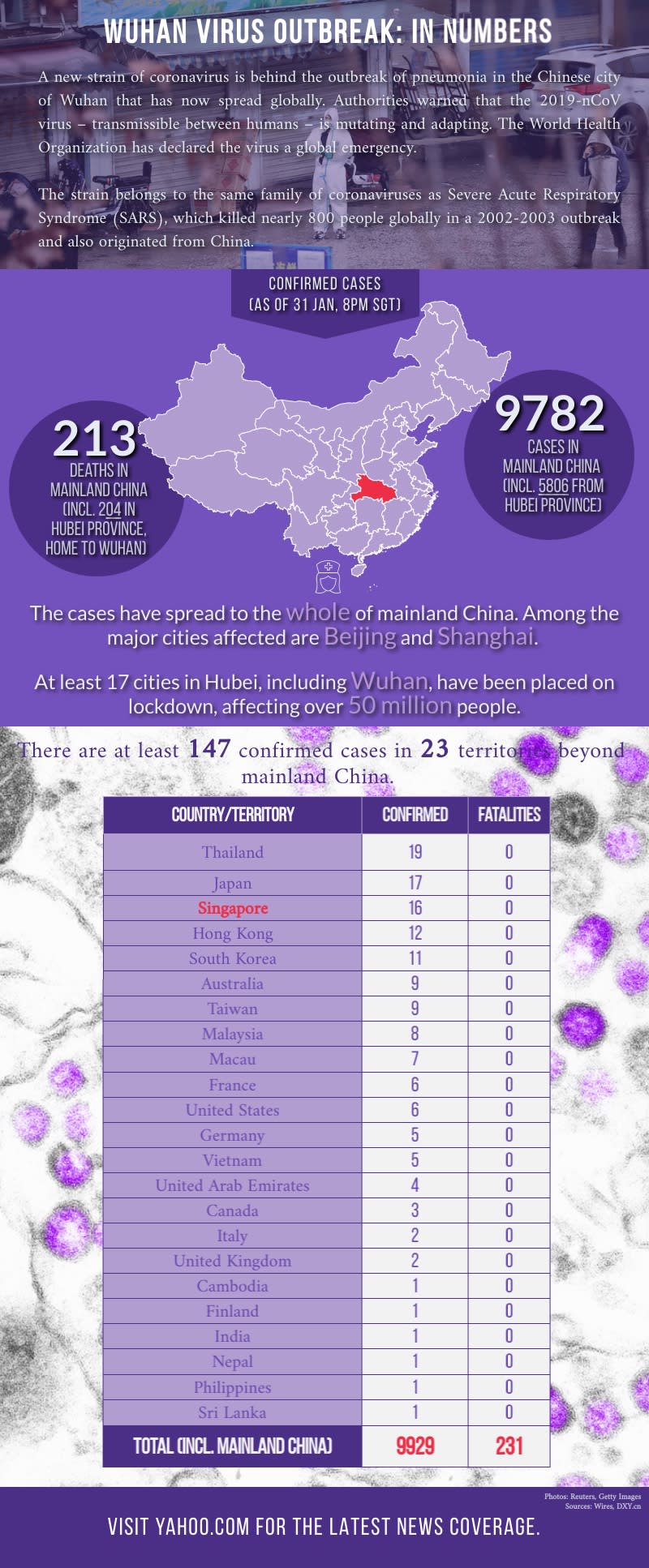Wuhan virus: Washing hands offers more protection than face masks, authorities say

By Wong Casandra and Nicholas Yong
SINGAPORE — Local authorities on Friday (31 January) stressed that washing hands with soap and water would provide more protection from the Wuhan coronavirus compared to using face masks, amid fears over falling supply and patients who were asymptomatic before their diagnosis.
This comes a day after a multi-ministry taskforce on the virus announced that a pack of four surgical face masks will be given to each of the 1.37 million households here.
Responding to questions fielded by media at Friday’s briefing chaired by the taskforce, Associate Professor Kenneth Mak, the designate director of medical services at the Ministry of Health (MOH), stressed that regular hand washing – and not masks – provides the biggest protection from the Wuhan virus.
He also said that the authorities are carefully studying individuals who caught the virus via exposure to previously asymptomatic patients with travel history to Wuhan.
While he noted that little information is available for such cases, making it hard to assess the exact risk, existing data show that there is a “very low risk” of patients getting infected in such scenarios.
“The number of people who are infected in this way is less than half a per cent, when you consider the large denominator of all people who have in fact had infections. We have not seen any evidence of this in Singapore… at this time, we don’t think that risk is significant,” said Prof Mak.
The novel coronavirus, or 2019-nCoV, belongs to the same family of coronaviruses as Severe Acute Respiratory Syndrome (SARS), which killed nearly 800 people globally during a 2002-2003 outbreak and which also started in China.
The novel coronavirus likely originated from Wuhan’s Huanan Seafood Market, where live animals or products – such as foxes, wolf puppies, giant salamanders, snakes, porcupines and camel meat – are sold.
It has spread to 23 territories beyond mainland China, sickening close to 10,000 people – surpassing figures for the SARS outbreak – and claiming 213 lives.
Symptoms of the new virus may include fever and symptoms of lower respiratory illness – such as coughing or difficulty in breathing – as well as pneumonia-like symptoms like a runny nose, sore throat and headache.
It can be transmitted from person to person, although it is unclear how easily. It is likely through contact with an infected person via particles in the air from coughing or sneezing, or by someone touching an infected person or object with the virus on it and then touching their mouth, nose or eyes.
“The measures that each of us needs to take is no different from the measures that we already consistently have advised all Singaporeans to adopt: good personal hygiene,” said Prof Mak.
Local authorities have been urging Singaporeans not to wear a mask if they are not feeling unwell, similar to advice by authorities in Australia and Taiwan.
However, this is in contrast to advice given in countries like Malaysia, Thailand and Vietnam, where the governments urged people to always have masks and hand sanitisers ready.
Official guidance from the World Health Organization and the Centre for Disease Control and Prevention makes no mention of wearing a face mask as a preventive measure against the virus – but their websites do not specifically advise against them.
The taskforce’s co-chair, National Development Minister Lawrence Wong, reiterated his call for Singaporeans to make use of the Republic’s existing stockpile of masks “judiciously” and prioritise it for essential medical services personnel or vulnerable groups.
The masks to be disseminated to Singaporeans are meant to be kept “as an emergency and a precaution”, he noted.
“Don’t use it immediately. Keep it when you really need it. And if you are able to manage the usage of the masks in this way, then I think we will be able to manage through this situation,” said Wong.
Minister for Communications and Information S Iswaran echoed Wong’s sentiments but stressed that the stockpile of masks will not remain “adequate” if there is “widespread (mass) buying, hoarding, and inappropriate or indiscriminate use”.
“That is why we are appealing for the understanding and cooperation of all Singaporeans. If we work together, I think we can manage this,” he added.
Authorities had earlier on Friday refuted claims by online media States Times Review, published on its Facebook page, that Senior Minister of State Dr Lam Pin Min had said Singapore had run out of face masks.
“This is false. Dr Lam had stated clearly that there was sufficient supply of masks if people use them responsibly,” it said.
The MOH on Friday also confirmed the Republic’s first Singaporean case of the fast-spreading virus here among three additional cases, bringing the total tally to 16.
The 47-year-old female, who travelled to Wuhan with her family, was one of 92 Singaporeans evacuated from the city on Thursday.
The other 15 patients are Chinese nationals, of whom at least 11 are residents of Wuhan.
Some of these cases reported being asymptomatic during their flights into Singapore, but developed symptoms a few days later. The ministry said that there is currently no evidence of community spread in Singapore.
Some 198 suspect cases have tested negative for the coronavirus as of 12pm on Friday, while test results for the remaining 35 cases are pending.
Of the 202 close contacts identified, 156 of the 162 still in Singapore are being quarantined or isolated, said the MOH. Efforts are ongoing to contact the remaining six.


Related stories:
Wuhan virus: 1st Singaporean confirmed case, total at 16
Wuhan virus: Singapore expands travel ban to all China visitors
Ministerial statements on Wuhan virus outbreak to be delivered in Parliament on Monday
Wuhan virus: MTI, MOH issue correction directions over fake news



